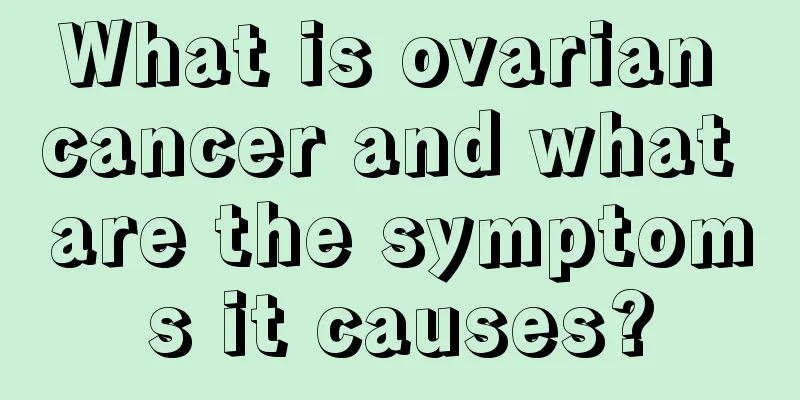What are the symptoms of colorectal cancer

|
The symptoms of colorectal cancer vary depending on the location. Common symptoms of right-sided colon cancer include weight loss, fatigue, and anemia, while left-sided colon cancer often presents with symptoms such as ileus. 1. Symptoms of right colon cancer Right-sided colon cancer is usually difficult to detect in the early stages due to the wider intestinal cavity. Common symptoms include weight loss, fatigue, and anemia. This may be because the tumor causes long-term chronic bleeding and the body cannot absorb enough nutrients. It is also possible to find a mass in the right lower abdomen. Although it is not easy to detect, if you feel an abnormal hard mass, it is recommended to seek medical attention in time. 2. Symptoms of left-sided colon cancer The intestinal cavity of left-sided colon cancer is narrower, which makes it easy to develop intestinal blockage. Common symptoms include abdominal pain, constipation or changes in bowel habits. There may be mucus, pus and blood in the stool, increased bowel movements, and a feeling of urgency, that is, the feeling that the bowel movements are not complete after going to the toilet. These symptoms often make people feel uncomfortable and affect their daily life. 3. Changes in bowel habits Whether it is right-sided or left-sided colorectal cancer, changes in bowel habits are an important sign. Pay attention to the shape, color, and frequency of your stools. If there are persistent changes, especially if your stools become thinner or contain blood, you should pay attention. 4. Abdominal discomfort and pain Abdominal discomfort is one of the common symptoms of colorectal cancer. You may feel bloating, cramps, or persistent abdominal pain. These symptoms may not be related to diet and may gradually worsen over time, so you need to be vigilant. 5. Systemic symptoms In addition to local symptoms, colorectal cancer may also cause systemic symptoms, such as fatigue, loss of appetite, and weight loss. These symptoms are often ignored because they are not specific enough, but if they occur at the same time as other symptoms, they need to be checked as soon as possible. 6. Early screening and prevention recommendations Early screening for colorectal cancer is very important, especially for people with a family history or those over 50 years old. Regular colonoscopy can help with early detection and treatment. Maintaining a healthy diet with more dietary fiber and less red and processed meat can also help reduce the risk. 7. Mental health concerns Mental health is equally important when facing colorectal cancer. Long-term symptoms may cause anxiety and depression. It is recommended to seek psychological support or join a relevant support group to get emotional help. By understanding these symptoms and suggestions, we can better pay attention to our own health. Once suspected symptoms appear, timely medical treatment is the key. Maintaining a healthy lifestyle and regular physical examinations are effective ways to prevent colorectal cancer. |
<<: Symptoms and measures for advanced pancreatic cancer
>>: What are the surgical methods for gastric cancer
Recommend
My knee hurts when I put force
There is a saying among the people that "the...
The role and efficacy of frozen powder
Now, with the emergence of various high-tech prod...
What are the complications after lung cancer brain metastasis? These symptoms need attention
When lung cancer patients have brain metastasis, ...
Is it okay to wash your face with pure milk at night
It is indeed possible to wash your face with pure...
Cleaning the washing machine
Have you ever cleaned your washing machine? Many ...
Can I have a natural birth if I have severe hemorrhoids? What are the conditions?
The presence of hemorrhoids can affect the health...
How to prevent rice from getting moldy
The food in the north is mainly pasta, while the ...
How to detect formaldehyde in a new house
Many people move into their new homes after they ...
How to remove rust stains?
Now that people's material life has improved,...
How can women prevent uterine tumors
Uterine tumors are also a very common type of fem...
Is the liver on the left or right?
In life, people will suffer from many types of li...
What is the shelf life of bagged coffee?
Many people like to drink coffee, and most people...
The efficacy and function of sapphire
Sapphire has a very important meaning in the hear...
What are the main preventive measures for prostate cancer?
Prostate cancer is a common malignant tumor in el...
What to do if high heels hit your feet
High heels are every woman's favorite and are...









